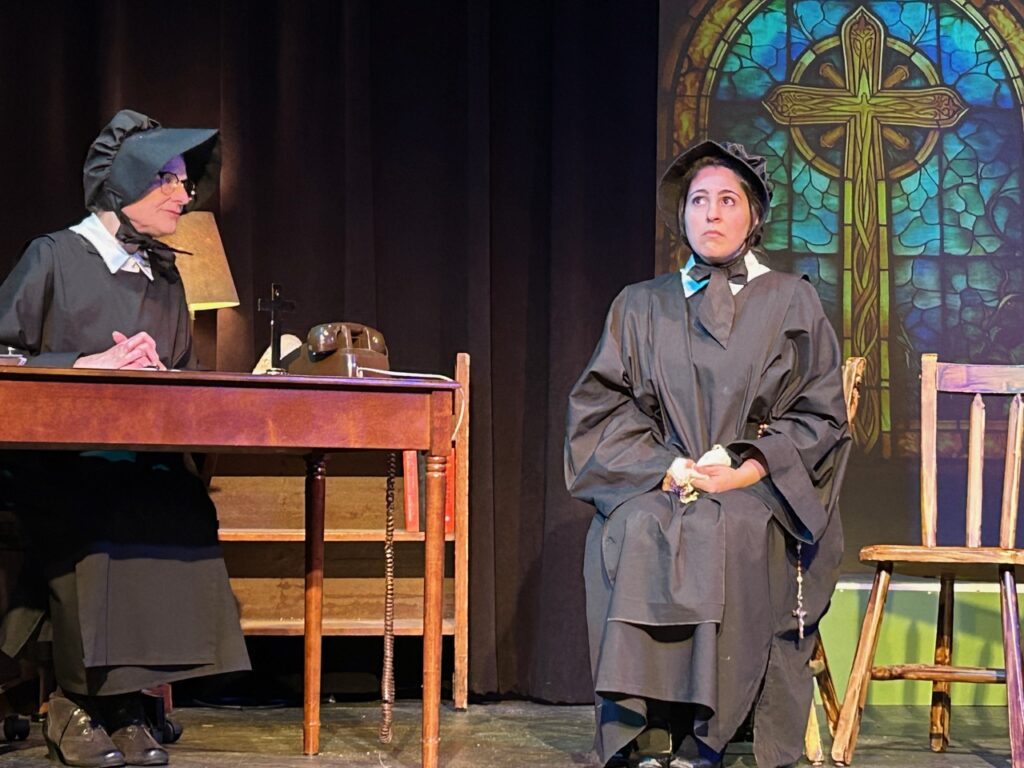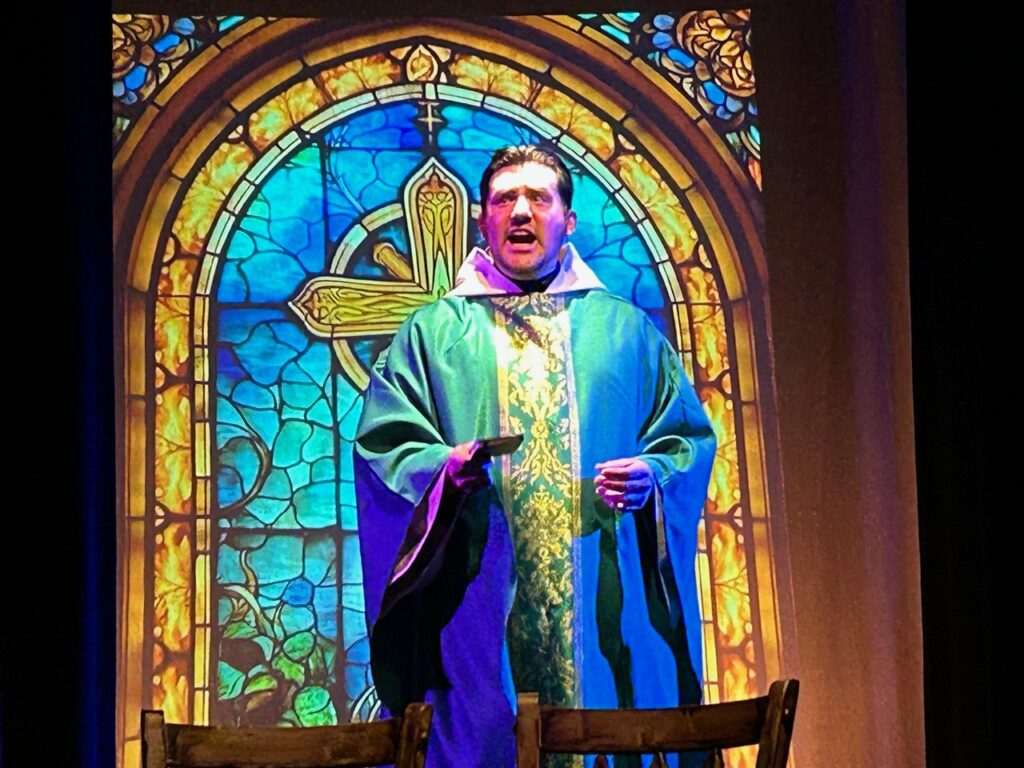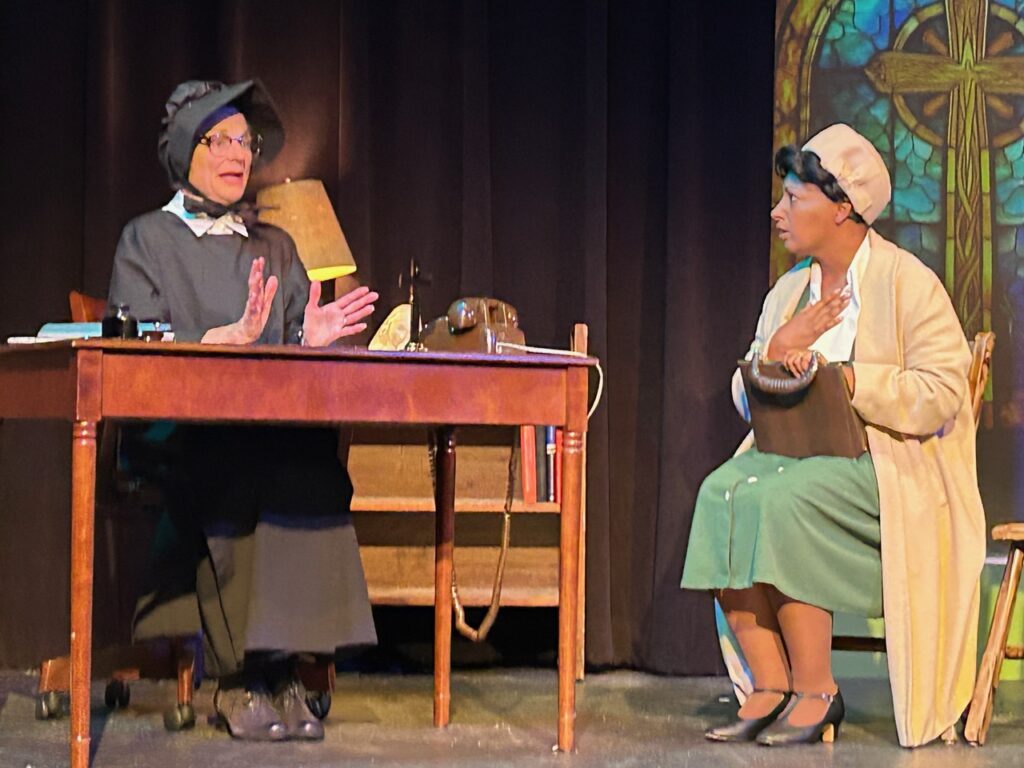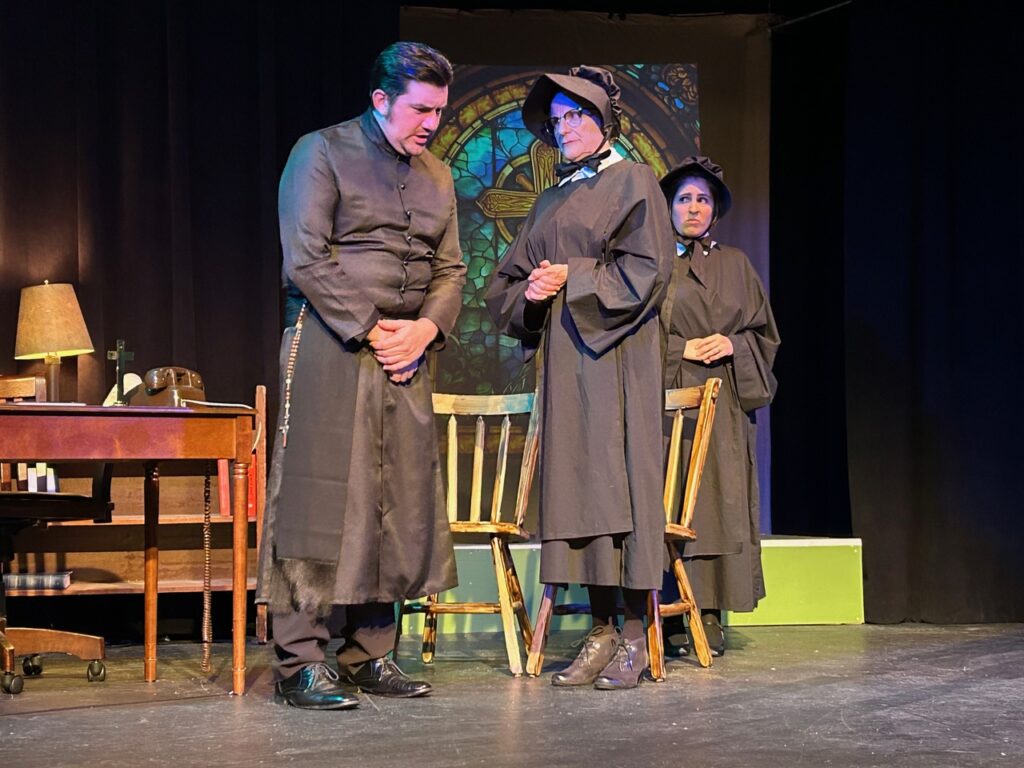By DAVID DUPONT
BG Independent News
In the background of “Doubt: A Parable” is the long sordid story of the Catholic Church’s clergy sexual abuse scandal. In a tense, terse 90 minutes, “Doubt” taps all the elements of the scandal — the denial, the collusion of the hierarchy, the suspicions, the betrayal, the victimization.
In “Doubt” those suspicions are aroused by seemingly minor details, and they are pursued by the play’s most unsympathetic character Sister Aloysius (Nancy Wright), the principal of St. Nicholas School.

The Village Players are staging John Patrick Shanley’s “Doubt: A Parable,” directed by Fran Martone, Thursday, July 18 at 7 p.m., Friday, June 19, and Saturday, June 20 at 8 p.m., and Sunday, June 21 at 2 p.m. in the Village Players Theatre 2740 Upton Ave., Toledo. Tickets are $15. Click to purchase.
She first hints that she does not trust the parish priest Father Flynn (Jake Spencer) during her conversation, more interrogation, with young Sister James (Samantha Heater).
The eighth grade teacher comes in to inquire about the well being of a student who had to leave school because of a serious nosebleed.
She’s concerned, the principal is cynical. She suspects the nosebleed was self-induced so William could get out of school.
“He has a restless mind,” Sister Aloysius tells Sister James.
That’s not bad, the young nun says.
But it is, the older nun corrects her. As the principal quizzes her on her teaching, it’s clear Sister James is falling short in the unforgiving eyes of Sister Aloysius.
She’s too close with the students. She is too enthusiastic. The principal likens her to an actress on stage.
While Sister James may want to be an approachable teacher, Sister Aloysius she be “a fierce moral guardian.”
Ballpoint pens, Frosty the Snowman, and art lessons are on the long list of what Sister Aloysius disapproves of. That list now includes Father Flynn whom she believes is becoming too familiar with one student in particular Donald Muller, a new student and the only Black student in the school.
Sister Aloysius asks how he is doing. Well, responds Sister James. “He has a protector.”
From there spins out the web of suspicion, and without the backdrop of the headlines, maybe we could see this as a vendetta. But the young priest’s relationship with the eighth grader has all the marks of grooming — not a term used then.

We meet Father Flynn in the first scene. He is giving a sermon on “doubt,” using the parable of a sailor lost at sea.
Why did he speak on that, Sister Aloysius wonders. Does he have doubts?
He’s friendly with the all the boys. Coaching them in basketball in a jocular way. When he has them all into the rectory to talk about what it takes to be a man, Sister Aloysius remarks that they look cocky as they leave.
The principal’s suspicions catch others up, including Donald.

When she calls his mother, played by Natalie Bostelman, in for a conference, we learn that Donald has a world of problems, and that his mother is doing her best to get them through and beyond him. And Father Flynn’s attention is helping him.
Her more open, loving yet worldly view clashes with the nun’s rigidity.

All the actors hit their marks.
Wright doesn’t give an inch in her portrayal of the nun, ever guarding against eliciting any bit of sympathy until the very end. She delivers her lines with a bluntness that’s comic until the stakes rise.
Spencer’s Father Flynn tries very hard to connect with parishioners, almost to the point of being swarmy. In another sermon inspired by the accusations against him, he uses a broad Irish accent for the characters in the story. He’s a product of Vatican II, preaching for a more open church in opposition to the arch traditionalist Sister Aloysius. The audience may well wonder if he is any match for her.
He has a reluctant ally in Sister James. Heater captures the young nun’s vulnerability, and uncertainty, and helplessness. Sister James has the making of a good teacher, if the principal doesn’t break her before she breaks free from the religious order.
Bostelman delivers a striking performance. In her one scene she’s called on to portray a woman buffeted on all sides by those who don’t have the best interests of her child at heart. Her mission is to help him survive in that world, even if it means certain compromises.
The play’s strength lies in its adherence to the title. The “Parable” in the subtitle, on the other hand, seems ironic. There’s no click of deeper understanding that the parable provides. There is no certainty in the end, for anyone. The truth lies out there still waiting to be discovered.



